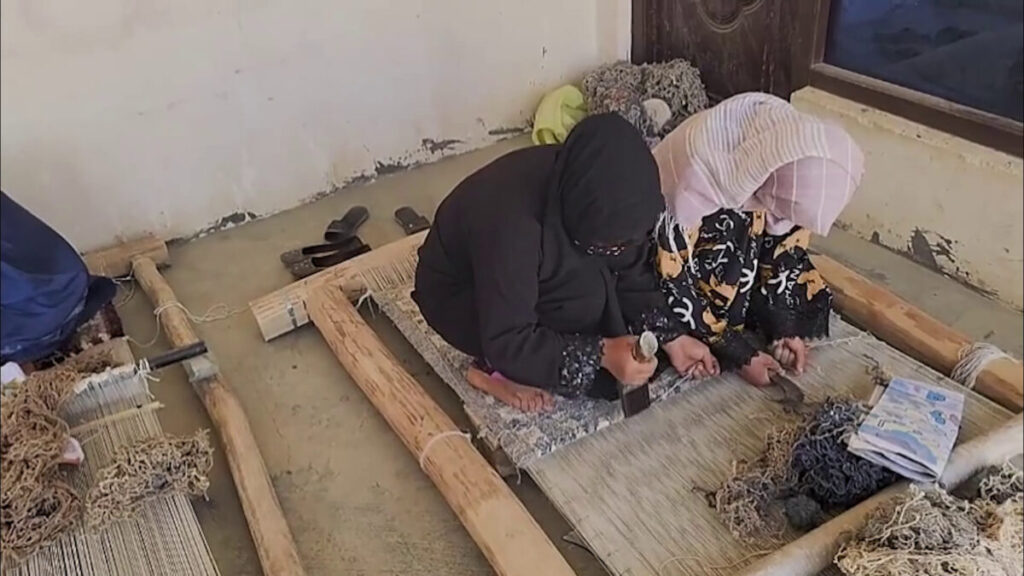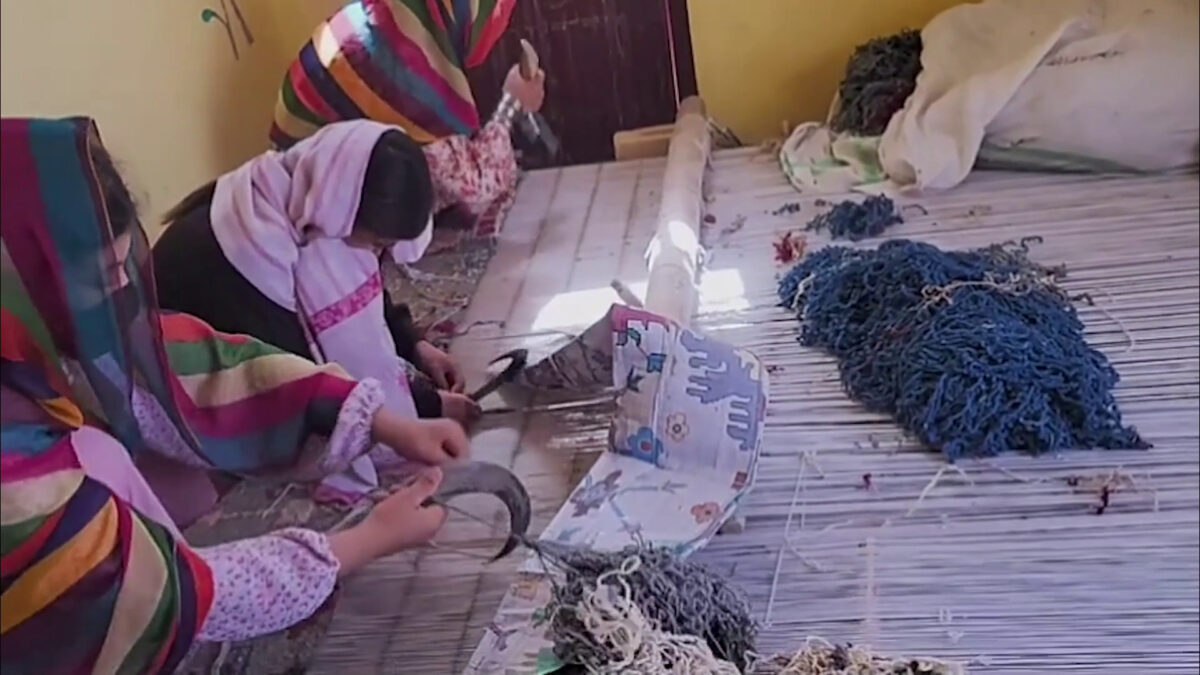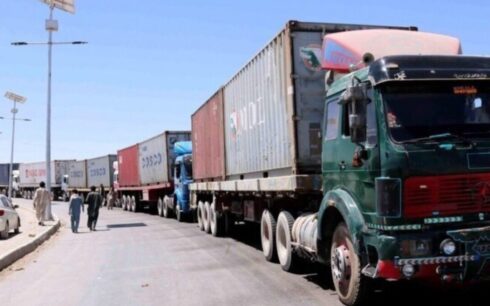Female carpet weavers in Jawzjan province expressed their frustration over a significant drop in carpet sales, attributing it to a lack of support for their products.
Hand-woven carpets have been a cornerstone of Afghanistan’s rich heritage, bearing international recognition for their quality and craftsmanship.
Women carpet weavers lamented that their livelihoods have suffered since the Taliban regained control of the country, as support for their industry has waned.
“My family of five and I weave carpets to make ends meet for our household of 15. We’re living in a rented house, but the prices of our carpets have plummeted. A 10-square-meter carpet sells for 18,000 Afghanis ($250), which barely covers our expenses,” said Saeeda Osmani, a resident of Jawzjan.
Marwa, employed at a carpet weaving factory, voiced her concerns over the disruption to her education.

“We were denied access to schools and universities, so we turned to carpet weaving. Our hope is that our carpets find their way to international markets,” she explained.
Many women engaged in the carpet weaving industry are grappling with dire economic conditions, a consequence of the country’s ongoing crisis since the Taliban’s resurgence.
A recent report by the World Bank has highlighted the continuous contraction and uncertainty within the Afghan economy.
The United Nations, in its report, underscored that women who are heads of households are among the most severely affected by the crisis in Afghanistan.
Qudria, another dedicated carpet weaver, expressed their financial predicament, stating, “Our situation has been largely ignored, and we are compelled to address our economic hardships through carpet weaving.”
Mohammad Anwari Rahimi, the head of the union of carpet weavers in northern Afghanistan, revealed that thousands of carpets remain unsold in factories due to the absence of international markets.
“Afghanistan’s carpets are struggling to find buyers. Over the past four to five years, thousands of carpets have remained in our possession, unsold and awaiting export,” he disclosed.

Afghanistan’s carpets primarily find their way to international markets through the Aqina port, where they are shipped to the UAE and then onward to European nations and the United States.
Carpet sellers lament the decline in exhibitions of Afghanistan’s carpets both domestically and internationally, a practice that was more prevalent before the Taliban’s resurgence. In recent years, this vital promotional avenue has been largely neglected, leaving Afghan carpet weavers to confront economic challenges with limited support.





